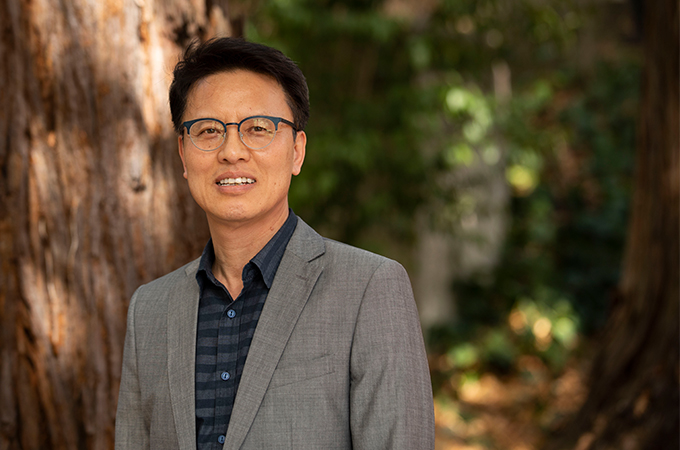For Professor Eugene Eung-Chun Park, the joy of scholarship comes in exploring new ways to interpret biblical passages.
A specialist in the New Testament, Park focuses on reading and interpreting texts against the backdrop of Greco-Roman philosophy, with special concentration on the Greek philosopher Plato.
Park shared some of his most recent scholarship on the topic in a 2019 piece published in Matthew, Paul, and Others (ed. by William Loader, Boris Repchenski, and Eric Wong).
“In this article I conduct a critical interpretation of Paul’s letter to the Galatians from the perspective of the dynamic between truth and freedom—concepts that are also present in four important Dialogues by Plato,” Park explains.
A consideration of the dynamic between truth and freedom appears first in Plato’s writings and then some 350 years later in Paul’s Epistles, he notes. “There’s no definitive evidence that Paul read Plato, but Plato was so well known that one can safely assume that Paul was aware of the basic themes in the philosopher’s dialogues.”
Thus, says Park, it seems entirely possible that Platonic concepts influenced Paul’s contemplations on truth and freedom.
Park, who is currently working on a book exploring religious doctrines of salvation in the Gospel of Matthew, is the David and Dana Dornsife Professor of New Testament in the University of Redlands Graduate School of Theology, an institution created by the 2019 merger between the San Francisco Theological Seminary (SFTS) and the U of R. He is delighted by this new affiliation.
“For some time now, I’ve longed to be part of a larger institution,” he observes. “New Testament studies are inherently interdisciplinary, so the opportunity to collaborate with colleagues in other departments is very exciting.”
Park also takes great pleasure from teaching the next generation. “I appreciate the strong commitment to justice that SFTS students share, and delight in seeing them discover that justice is one of the core values of the Bible,” he says. “I try to educate my students to become competent and efficient leaders of Christianity in 21st-century global society, which is postmodern, multicultural, and multireligious.
“As a member of the Graduate Theological Union, and as part of the University of Redlands, SFTS is well poised to provide an optimal environment for the kind of interdisciplinary and interreligious studies that would best serve the new religious landscape of contemporary human society.”
Learn more about the U of R Graduate School of Theology.






